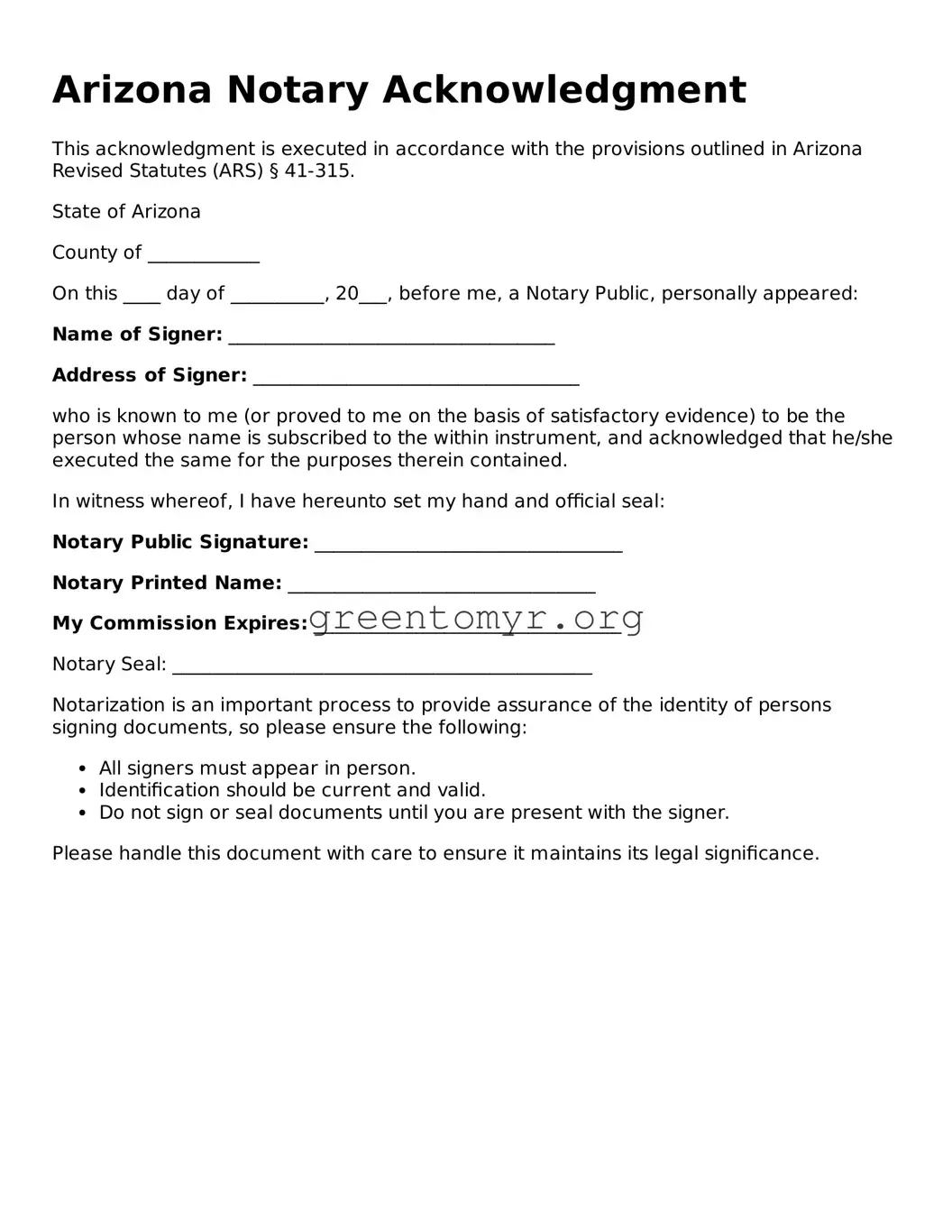Arizona Notary Acknowledgment
This acknowledgment is executed in accordance with the provisions outlined in Arizona Revised Statutes (ARS) § 41-315.
State of Arizona
County of ____________
On this ____ day of __________, 20___, before me, a Notary Public, personally appeared:
Name of Signer: ___________________________________
Address of Signer: ___________________________________
who is known to me (or proved to me on the basis of satisfactory evidence) to be the person whose name is subscribed to the within instrument, and acknowledged that he/she executed the same for the purposes therein contained.
In witness whereof, I have hereunto set my hand and official seal:
Notary Public Signature: _________________________________
Notary Printed Name: _________________________________
My Commission Expires: _________________________________
Notary Seal: _____________________________________________
Notarization is an important process to provide assurance of the identity of persons signing documents, so please ensure the following:
- All signers must appear in person.
- Identification should be current and valid.
- Do not sign or seal documents until you are present with the signer.
Please handle this document with care to ensure it maintains its legal significance.
